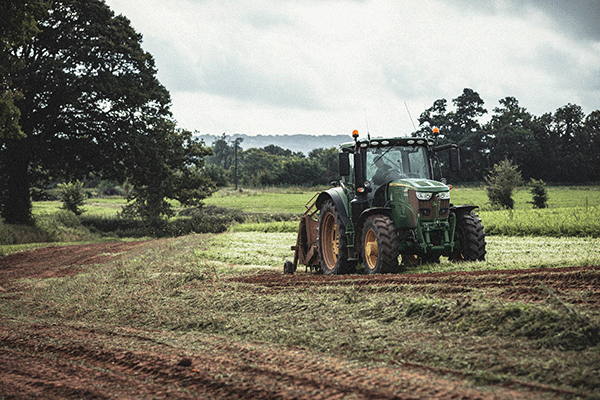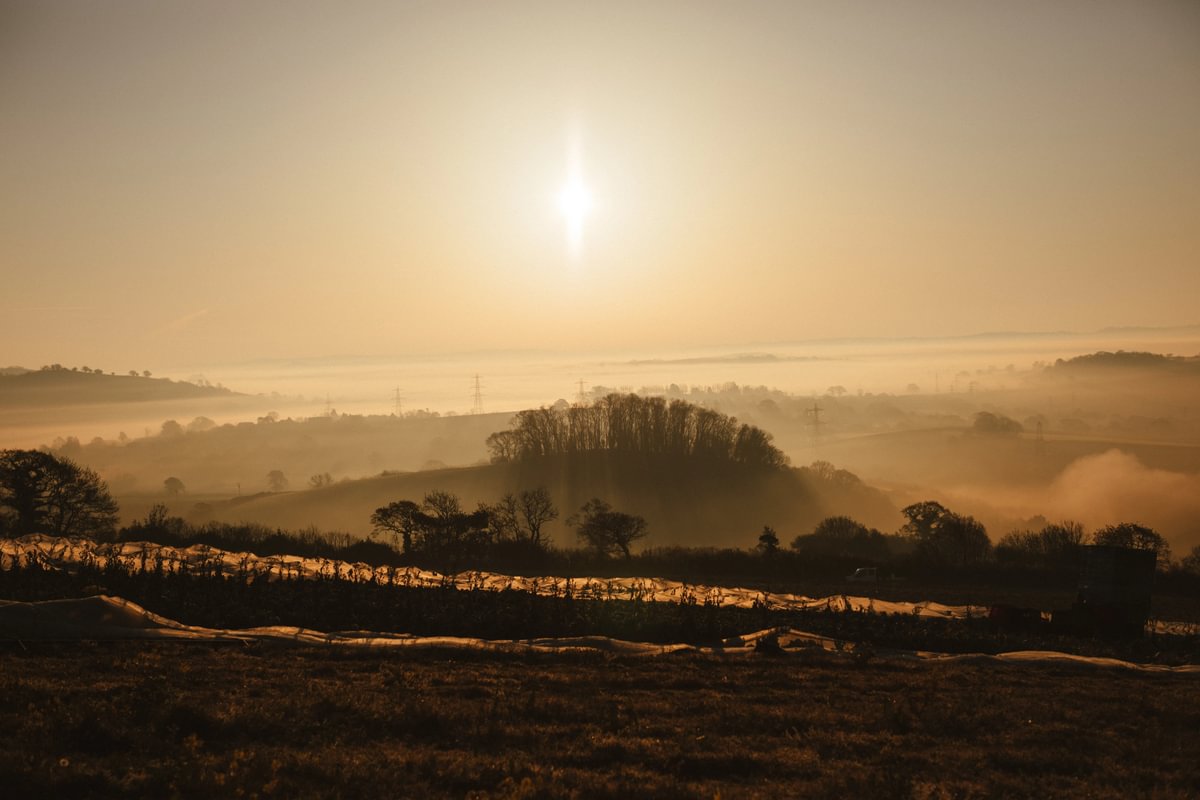“It doesn’t matter where you are in the world at the moment, people are asking ‘how can we feed ourselves in a resilient and sustainable way?’” explained Patrick Holden, farmer and chief executive of the Sustainable Food Trust, speaking at the Oxford Real Farming Conference (ORFC) last month.
But can Britain feed itself, and what diets would be compatible with sustainable farming?
The short answer is a very positive yes, but if we transition the UK to a sustainable food future it means change for all of us, not just farmers.
“It’s not the plough, but the how,” said Holden, pointing out that because of incredibly varied landscape and farming systems, you can’t have a blanket approach in the UK.
It needs the whole of the country moving to a regenerative system, suited to different climate zones and soils, restoring the connection to “eating from the landscape where you live”, as Holden put it. “If we are going to move away from our umbilical dependence on chemicals, we need to return to mixed farming, with grass and clover to build soil fertility,” he said.
What will our landscape look like if we farm this way?
Sue Pritchard, head of the Food, Farming and Countryside Commission (FFCC), speaking at ORFC from her Welsh farm, described how an agroecological UK landscape could work, as modelled by their new Farming For Change research.
She shared a positive picture of what our land could look like by 2050; farming monocultures replaced with greater diversity, more space for nature, the phasing out of synthetic nitrogen, pesticides and herbicides, and biodiversity restored across the entirety of the farm landscape.

Where do animals fit into the equation?
Under this model, livestock would still be part of our rural landscape – but in a very different way: “Transitioning to a biologically sustainable system, you’re going to have to take half of your land out of production and put it into to fertility building crops, consumed by ruminant animals (beef, sheep or dairy cows),” said Holden.
“Unless we eat them, it’s going to be difficult for farmers to make a living if they farm that way.” Factory farmed poultry and pigs would end, as a 50 per cent reduction in grain production means less grain-fed industrial animal farming.
What does this mean for the kind of food we would be growing?
According to Holden: “Our identity, and our health needs to be connected to the land, and the soil where we live. We have become global citizens, dining out on a global anonymous diet.”
We eat an average of 2,500g per day but as Nicolette Hahn Niman, rancher and author of Defending Beef, pointed out: “The Western diet is focused on food high in calories, but low in nutrition. We can reverse this by growing healthy, nutrient rich, local food, with an emphasis on less food waste and reducing the ‘empty calories’.”
So, what could our weekly shop look like?
Junk food and fizzy drinks will be out, and instead there would be a return to ‘real food’, focusing on eating with the seasons, provenance and nutrient density. More sustainably grown seasonal UK grown veg and fruit will be on our plate, along with nuts, pulses, and legumes – of which there is very little grown in the UK currently.
Less and better, higher welfare meat would be eaten, with much less chicken and pork in our daily diet. More Fairtrade items would be in our shopping basket through a policy of progressive trade for items we can’t grow ourselves, such as coffee or chocolate.
What about the cost?
Affordability is important as “very often we get pushback, challenged on whether ‘Isn’t this future you are describing a middle-class fantasy?” said Pritchard. But the idea we just need to produce more cheap food for those in food poverty is one to challenge.
“It is an absolute travesty that the need for cheap food has become a strapline for a particular business model that has commodified and financialised food systems, so that the needs of the poor and vulnerable have become an excuse. It is not about people. It is about the system – a system that is dysfunctional,” said Pritchard.
Surely organic can’t compete on crop yields?
“The sector has become the absolute prisoner of the yield argument,” Pritchard explained. “Very often this conversation is underpinned by assumptions that don’t stand up to interrogation. If we wasted less and ate differently, we would still be able to maintain level of self-sufficiency and staple foods.”
What can we do to support this vision of a healthier food future?
Changing our mindset is vital; as Niman said “we need to have a willingness to get out of the comfort zone.”
Pritchard sees reason for hope, even with the enormity of the task ahead. Change happens through reaching a critical mass, so to enable that, she said we need to put more effort in creating and amplifying new narratives, which provide alternatives for the future. “People are already doing things. Keep telling the story of practical change happening now,” she said.










Fascinating stuff, but I think the question should best be rephrased so:
If sustainable food can’t feed Britain, how on earth will our children feed themselves?
A very good point – there is an urgent need to address this question and take action now to protect our food future.
This article outlines everything I hope for the future of food. We do our best to eat seasonally using UK grown veg where possible but it would be fantastic to see a countrywide move in this direction. Behind it 100%
Thankyou Lucy, part of the problem is the constant news drip feed that there is no hope, when in fact we have the knowledge and ability to create positive change, with many people worldwide already proving this. Holden said in this talk that there is a real groundswell of farmers wanting to farm regeneratively and organically. It just now needs the government to act- and more support from the public telling them this is the future we want to see.